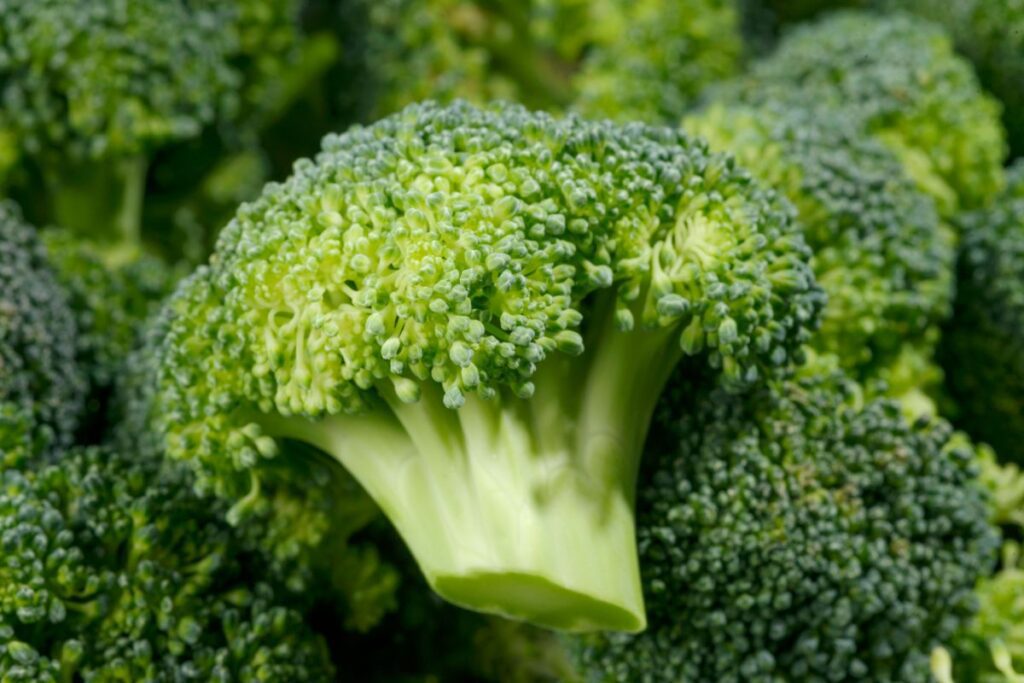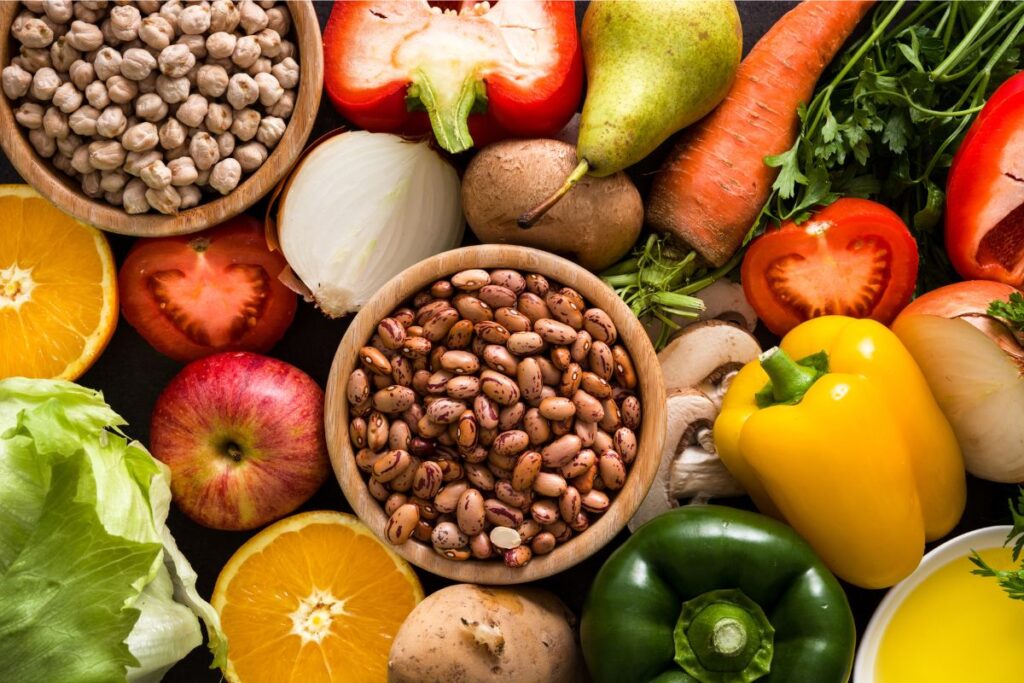We use affiliate links. If you purchase something using one of these links, we may receive compensation or commission.
Discover 21 Healthy Cooking Tips for Nutritious Meals. Unlock the Secrets to Better Eating with These Expert Insights.

Is Broccoli Healthy?

You’ve probably heard the age-old saying, “You are what you eat.” But have you ever considered that you are also what you cook? The way you prepare your meals plays a crucial role in determining their nutritional value. Recent research conducted at MD Anderson has shed light on 21 invaluable tips that can transform your cooking habits, resulting in healthier and more nutritious meals.
Cooking for Health
Cooking isn’t just a chore; it’s a science. There are no one-size-fits-all rules for healthy cooking, but MD Anderson researcher Dr. Margaret Raber, an expert in public health, is on a mission to change that. She’s dedicated her efforts to studying family cooking habits, aiming to unravel the mysteries of nutritious meal preparation.
“I wanted to know if certain cooking practices could enhance the nutritional value of our meals,” says Dr. Raber. Her findings have given birth to 21 remarkable cooking tips that can elevate the healthiness of your meals, regardless of what you’re preparing.
The 21 Healthy Cooking Tips

1. Cook at Home
Eating out or ordering takeout often means relinquishing control over the ingredients and preparation methods. Cooking at home allows you to make sure your meal is as healthy as can be, and it can save you money in the process.

2. Cook with Basic Ingredients
Start with whole foods like raw vegetables, fruits, lean proteins, and whole grains. Preparing meals from scratch ensures you’re consuming food in its purest form, without any unwanted additives.

3. Avoid High Temperatures
Grilling or pan-frying meat at high temperatures can lead to the formation of harmful chemicals known as heterocyclic amines (HCAs) and polycyclic aromatic hydrocarbons (PAHs), which have been linked to cancer. Opt for gentler cooking methods.
4. Say No to Deep Frying
Deep frying foods can also produce carcinogens. For instance, beloved treats like French fries and potato chips contain acrylamide, another cancer-linked compound.

5. Choose Low-Fat Cooking Methods
Boiling or steaming your food can help you avoid the formation of harmful chemicals associated with high-temperature cooking. Plus, it reduces unnecessary fat intake, aiding in maintaining a healthy weight.
6. Measure Ingredients Precisely
Portion control is key. Ensuring you consume the right serving size of meat, carbohydrates, and condiments like oil and salt helps manage calorie intake.
7. Avoid Overcooking Meat
Cooking meat or fish until well-done or browned can lead to the same harmful chemical formation observed at high temperatures. Be mindful of the doneness level.
8. Reduce Added Sugars
Sugar is a source of empty calories, contributing to weight gain without providing essential nutrients. Minimize your intake of added sugars and sweeteners.
9. Cut Down on Animal Fats
Reducing the use of high-fat animal products like cheese and butter can make your meals healthier by lowering saturated fat content. Experiment with olive oil or super-fine grated cheese for added flavor and fewer calories.
10. Minimize Processed Foods
Packaged and processed foods often contain excessive salt, sugar, and chemical additives. Opt for low-sodium and no-added-sugar versions when choosing canned vegetables and other packaged items.
11. Incorporate More Fruits and Vegetables
Fresh or frozen produce can instantly boost the nutritional profile of your meals. Antioxidants and phytochemicals found in plants help combat diseases like cancer.
12. Opt for Olive or Canola Oil
Studies link the use of olive oil to a reduced risk of obesity and cardiovascular issues. Canola oil is a viable alternative due to its healthy omega-3 content and cholesterol-lowering properties.
13. Choose Whole Grains
Swap refined grains for whole grains like brown rice. They’re rich in fiber, which reduces the risk of colorectal cancer and keeps you feeling full longer. Whole grains are also associated with a lower risk of type II diabetes and heart disease.
14. Enhance Flavor with Herbs and Spices
Elevate your dishes with natural seasonings like herbs, spices, onions, garlic, and citrus. They provide robust flavor without the drawbacks of excessive salt and sugar. Many of these ingredients also offer additional antioxidants, promoting overall health.
15. Moderate Salt Intake
Excessive salt consumption is linked to heart disease and stomach cancer. Be mindful of your salt usage when cooking and seasoning.
16. Avoid Processed Meats
Bacon and hot dogs may add flavor, but they also increase your cancer risk. When adding taste to your dishes, opt for herbs, spices, onions, garlic, and citrus instead.
17. Ditch Margarine and Cream-Based Sauces
High-fat and cream-based sauces can significantly increase the calorie count of your meals, potentially leading to weight gain. Consider healthier alternatives for dressing up your dishes.
18. Use Nutritional Labels
When buying packaged foods, pay attention to nutritional labels. Look for products with lower saturated fat, added sugars, and sodium.
19. Practice Mindful Eating
Slow down and savor your meals. Mindful eating helps you become more attuned to hunger and fullness cues, preventing overeating.
20. Experiment with Plant-Based Proteins
Incorporate plant-based protein sources like beans, lentils, and tofu into your meals. They are lower in saturated fat and can be just as satisfying as meat.
21. Stay Hydrated
Drink plenty of water throughout the day. Staying hydrated supports overall health and can help control appetite.
Conclusion
Healthy cooking isn’t about sacrificing flavor; it’s about making smarter choices in the kitchen. By following these 21 tips, you can transform your cooking habits and enjoy nutritious meals that nourish your body and soul.
Frequently Asked Questions (FAQs)
1. Can I still enjoy flavorful meals while cooking healthily?
Absolutely! Using herbs, spices, and other natural seasonings can enhance the flavor of your dishes without compromising on health.
2. Are there any alternatives to deep frying that are healthier?
Yes, consider methods like baking, grilling, or air frying for a healthier alternative to deep frying.
3. How can I reduce my salt intake without sacrificing taste?
Experiment with herbs, spices, and citrus to add flavor without excessive salt. You can also use low-sodium options.
4. Can I incorporate more fruits and vegetables into my diet without making drastic changes?
Start by adding a serving of fruits or vegetables to each meal. Gradually, you’ll develop a taste for these nutritious options.
5. Is it essential to cut down on animal fats completely?
You don’t have to eliminate them entirely, but reducing your consumption of high-fat animal products can have health benefits. Opt for leaner cuts and use them in moderation.
Unlock the secrets to healthy cooking and embark on a delicious journey to better health today!



